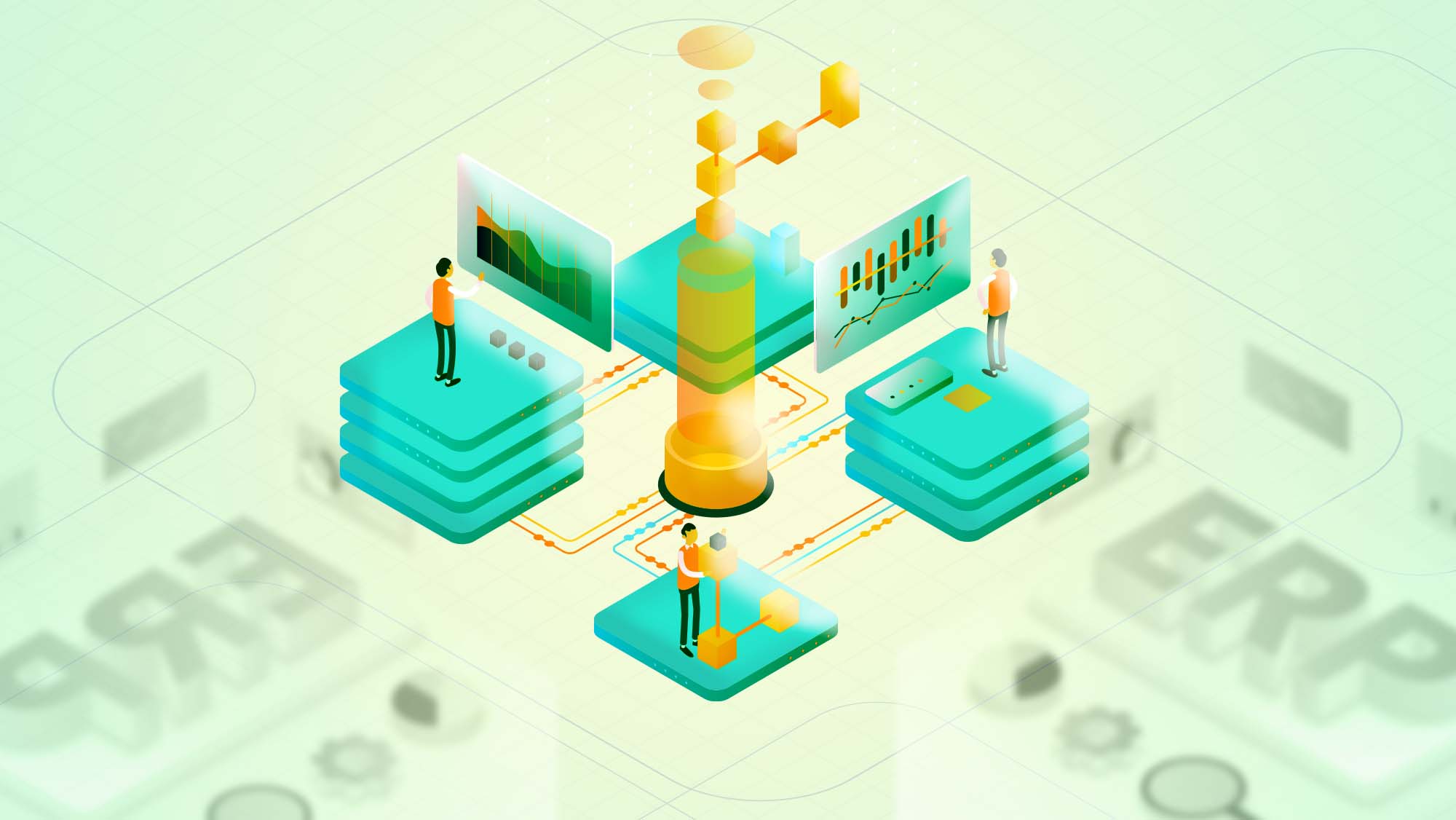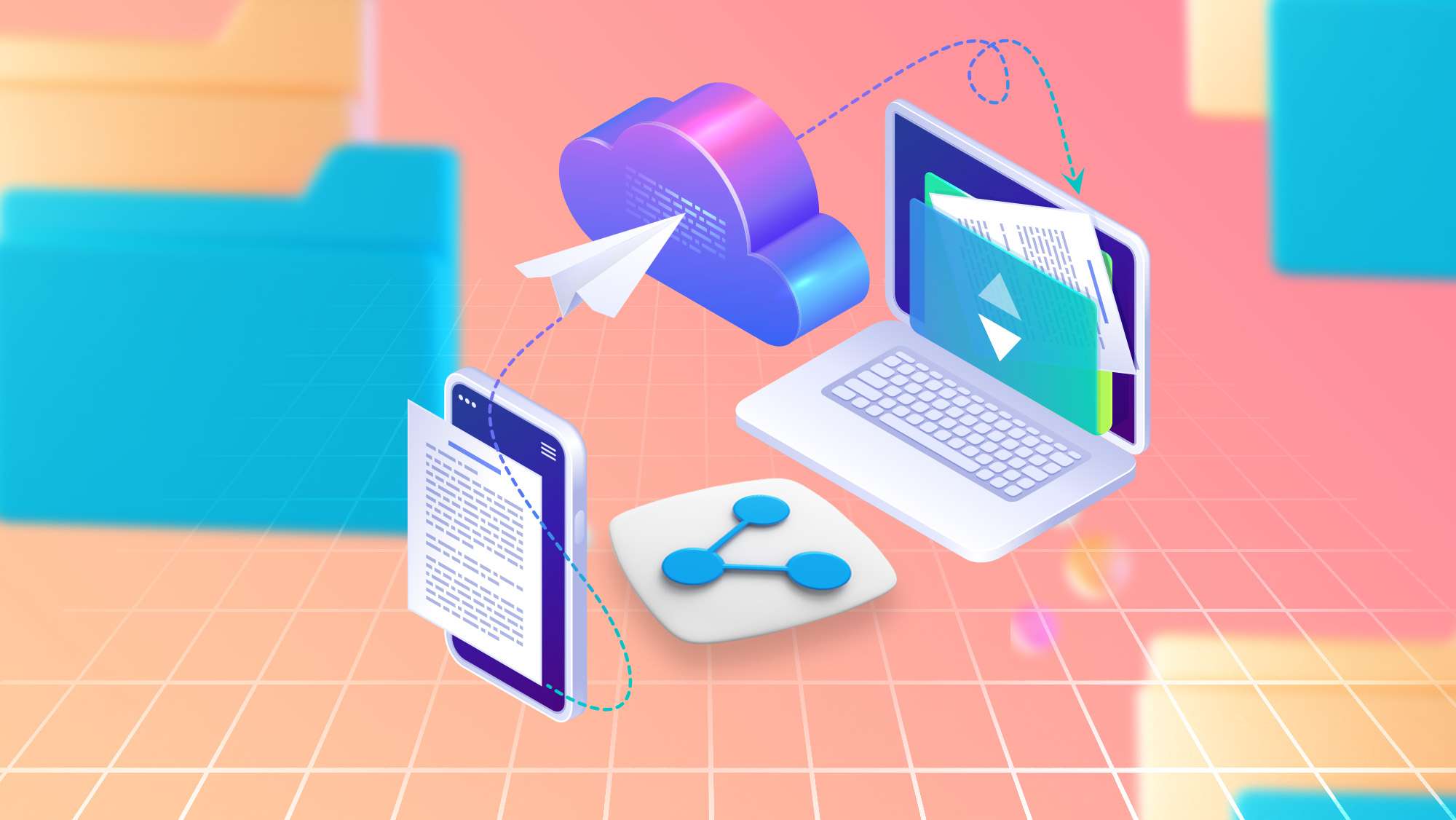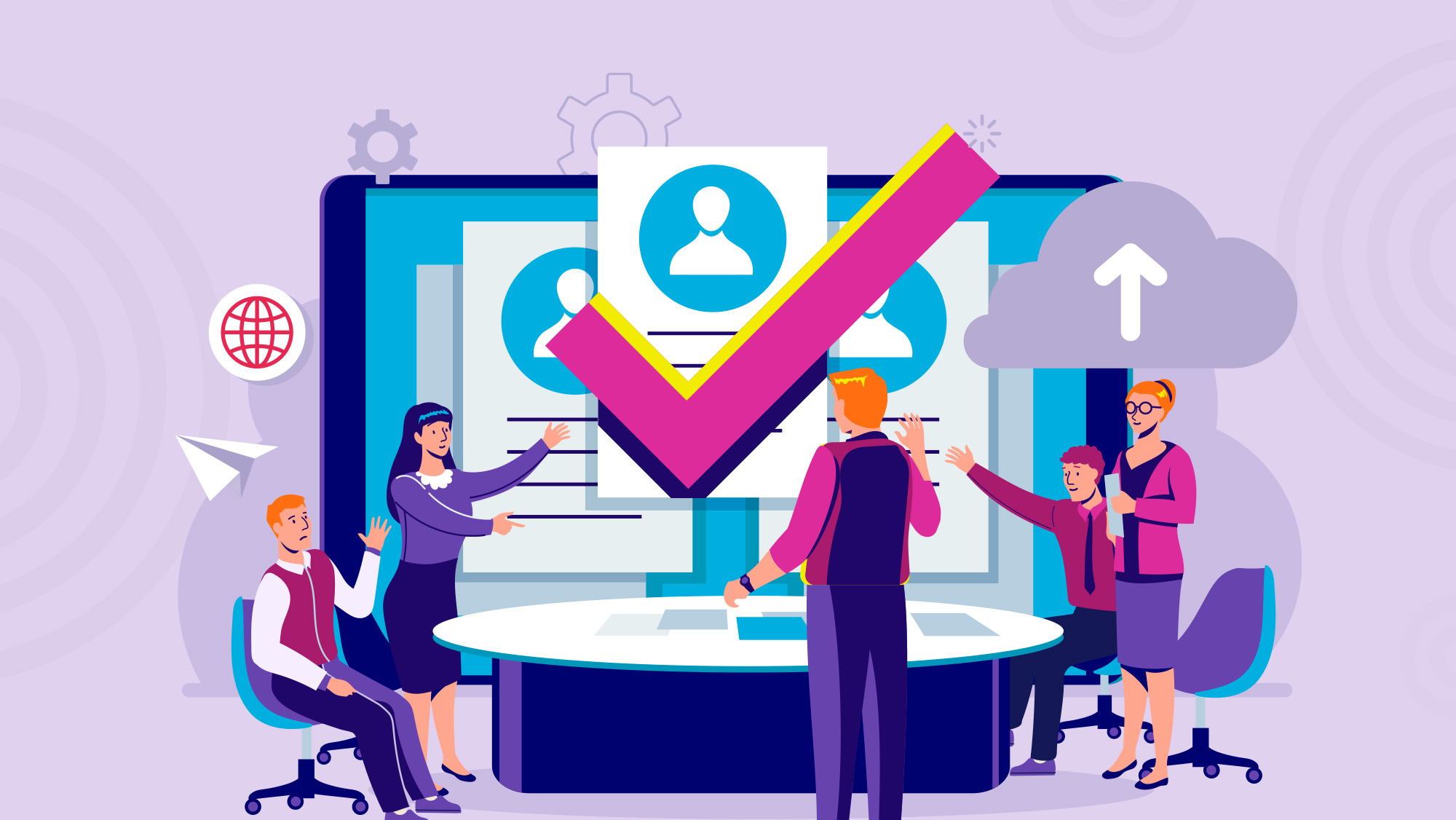Table of Content
Enterprise Resource Planning (ERP) software is a powerful tool for managing a company's business processes and data. Despite its numerous benefits, there are several misconceptions and myths about ERP software that have made their way into business circles. In this article, we will decode the reality behind the top seven misconceptions about ERP software.
By busting these myths, we aim to provide a clearer understanding of the capabilities and benefits of ERP Software and make it easier for companies to take the digital route and start their digital transformation journey
7 Myths About ERP Solutions
ERP is Made for Big Companies
This myth is not true. ERP software can be used by companies of all sizes, from small businesses to large corporations. The key factor in determining whether a company needs an ERP system is the complexity of its business processes, not its size.
Any company or business house that has multiple departments or business processes that need to be integrated and streamlined can benefit from an ERP system. In fact, many small and medium-sized businesses are now implementing ERP systems to improve their operations and increase their efficiency. With the availability of cloud-based ERP solutions, small and medium-sized businesses can now implement an ERP system to stay ahead and save on expensive hardware or IT infrastructure costs.
ERP is Only For Manufacturing
This myth is not true either. Although ERP software is commonly associated with manufacturing companies due to its complex business process, it is equally beneficial and can be used by companies in many other industries, such as retail, healthcare, education, construction, and finance. Any business that has multiple departments or business processes that need to be integrated and streamlined can benefit from an ERP system.
ERP software can be customised to meet the specific needs of any business, regardless of the industry they operate in. Therefore, ERP is not only for manufacturing companies since you can get Customised ERP Implementations as per your specific business needs to scale ahead and have maximum impact irrespective of any industry.
ERP Requires You to Have Deep Pockets
There is a common myth that Enterprise Resource Planning (ERP) systems are too expensive for small to medium-sized businesses (SMBs). However, this is not entirely true. Choosing to go for an ERP solution is bound to reap long-term dividends by bringing down your operational costs.
Here are some ways in which an ERP system can help SMBs bring down operational costs:
- Improved efficiency: An ERP system can automate many business processes, reducing the need for manual labour and thereby reducing labour costs
- Better inventory management: It can help SMBs optimise their inventory levels, reducing the amount of money tied up in excess inventory and reducing the risk of stockouts.
- Streamlined financial management: Streamlines and simplifies financial operations, reducing the risk of errors and ensuring compliance with regulations.
- Improved customer service: Improves customer service by providing better access to customer data, enabling faster response times and more personalised service to enhance the consumer experience.
- Better decision-making: An ERP system can provide SMBs with real-time data and analytics, enabling better decision-making and faster response times as per the changing market conditions.
Furthermore, there are now many Cloud-Based ERP Solutions available that can be more cost-effective for SMBs. These solutions require a less upfront investment in hardware and software and can be easily scaled up or down as needed.
Implementing an ERP Software is Irksome
It is nothing but a pretty common misconception that ERP is difficult to implement. While implementing an ERP system can be complex and time-consuming, it is not difficult if done properly.
There are several factors that can contribute to a smooth ERP implementation process, including:
- Thorough planning: A well-planned implementation process can help identify potential roadblocks and ensure that the project stays on track.
- Clear communication: Communication between all stakeholders, including IT teams, business users, and external consultants, is crucial to the success of an ERP implementation
- Training and education: Providing adequate training and education to all users can help ensure that the system is used effectively and efficiently
- Choosing the right software: Choosing an ERP system that fits the specific needs of the organisation and has a dedicated support system can significantly reduce implementation challenges. You can opt for Microsoft Dynamics 365 if you happen to be searching for state-of-the-art ERP software for your small or medium-scale business.
- Experienced implementation team: Partnering with an experienced implementation team or ERP Consultant, such as Dynamics Square, can help mitigate potential challenges and ensure a Smooth Implementation Process.
There is no Difference Between ERP and CRM
ERP (Enterprise Resource Planning) and CRM (Customer Relationship Management) are two distinct software systems that serve different purposes in a business.
- ERP is a software system that integrates different business processes such as finance, inventory, manufacturing, and human resources into a single system. It provides a unified view of a company's operations, allowing for better coordination and decision-making. ERP is typically used by organizations with complex operations that require extensive management of resources and workflows.
- However, CRM is software that focuses on managing customer interactions and improving customer relationships. It allows businesses to manage customer data, track customer interactions, and analyse customer behaviour to identify opportunities for improving customer satisfaction and loyalty. CRM is typically used by businesses that rely heavily on customer relationships, such as sales and marketing teams.
- While there may be some overlap in functionality, ERP and CRM serve different purposes and are designed to solve different business challenges. ERP is more focused on internal operations, while CRM is more focused on external customer-facing activities. It is important for businesses to understand the differences between these two systems and choose the one that best meets their specific needs or both to have maximum impact.
The Use of ERP is Limited to IT Companies
- The myth that ERP (Enterprise Resource Planning) is only for IT professionals is not true. While it is true that IT professionals play a crucial role in implementing and maintaining ERP systems, ERP is designed to be used by all departments within a corporate, including finance, human resources, operations, and supply chain management.
- ERP systems provide a central database that stores information about all aspects of a company, including inventory, production schedules, financial data, customer information, and employee data. This information can be accessed and used by different departments within the organisation to make informed decisions and improve processes.
- While IT professionals are responsible for setting up the system, configuring it, and ensuring it runs smoothly, the actual end-users of the system are typically not IT professionals. Instead, they are employees from different departments who use the system to perform their day-to-day tasks.
- In fact, ERP systems are designed to be user-friendly and intuitive so that non-technical employees can easily navigate and use the system. Many ERP vendors offer training and support to ensure that all users can effectively use the system.
Overall, ERP is not only for IT professionals but for all employees within an organisation who need to access and use data to make informed decisions and increase their work effectiveness to deliver better outcomes.
An ERP Software Is not Flexible
- Many people believe that ERP software is not flexible and unable to accommodate the unique needs of their company. However, this is a common myth. ERP software can be customised to meet the specific needs of your company. In fact, one of the main benefits of ERP software is its ability to integrate and streamline business processes across departments, which requires flexibility and customisation.
- ERP vendors typically offer customisation services that allow you to tailor the software to your specific business requirements. This can include adding custom fields, creating custom workflows, or developing custom reports. Many vendors also have a marketplace of third-party add-ons and modules that can be integrated into the system to add additional functionality.
- While customisation can increase the cost of the ERP implementation and make the system more complex, it is often necessary to meet the unique needs of your organisation. However, it is important to carefully consider the scope of customisation and balance the benefits of customisation with the cost and complexity. Over-customisation can make the system more difficult to maintain and upgrade, so it is important to find the right balance.
Conclusion:
In conclusion, Microsoft Dynamics 365 has been surrounded by several myths that may deter businesses from leveraging its benefits. However, it is important to understand that Dynamics 365 is a powerful cloud-based platform that offers a wide range of features and capabilities to enhance business operations.
The myths surrounding its high cost, complexity, and lack of flexibility are largely unfounded, as the platform is highly customisable and scalable to meet different business needs. Moreover, Dynamics 365 offers robust security and compliance features to safeguard sensitive business data. Therefore, businesses should consider adopting Dynamics 365 to streamline their operations, boost productivity, and enhance customer engagement.

Witness a scalable transformation
Experience real-time synchronisation and flexibility with a consistent view across your business.
Disclaimer– “All data and information provided on this blog is for informational purposes only. Dynamics Square / MPG Business Information Systems Pvt. Ltd. makes no representations as to accuracy, completeness, currentness, suitability, or validity of any information on this site and will not be liable for any errors, omissions, or delays in this information or any losses, injuries, or damages arising from its display or use.”













